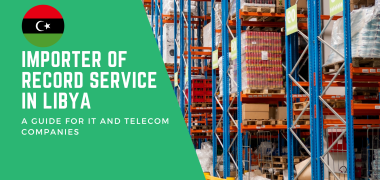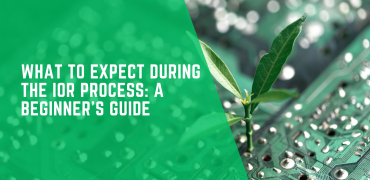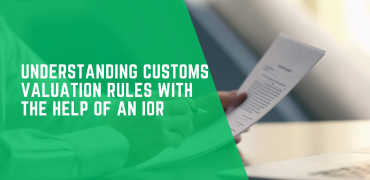Libya, a country in the midst of rebuilding its infrastructure, presents significant opportunities for IT and telecom companies looking to enter its market. However, navigating the import regulations, duties, and required permits can be challenging. This guide aims to provide a comprehensive overview of the Importer of Record (IOR) service in Libya, specifically for IT and telecom equipment, detailing the import duties, taxes, and special permits needed to ensure a smooth and compliant importation process.
Introduction to Importer of Record Service
An Importer of Record (IOR) service is a critical facilitator for companies looking to import goods into foreign countries. The IOR assumes the responsibility for ensuring that all goods meet local compliance standards, handling import documentation, paying duties and taxes, and securing the necessary permits and approvals. This service is particularly valuable in countries with complex regulatory environments like Libya, where navigating the importation process can be daunting.
Why IT and Telecom Companies Need an IOR in Libya
For IT and telecom companies, the necessity of an IOR service in Libya is underscored by the stringent regulations and bureaucratic hurdles involved in importing high-tech equipment. From network servers and routers to smartphones and fiber optic cables, these products often face a myriad of regulatory challenges. Utilizing an IOR ensures compliance with Libyan laws, reduces the risk of delays, and facilitates a smoother entry into the market.
Import Duties and Taxes on IT and Telecom Equipment in Libya
Import duties and taxes are a significant consideration for any company looking to bring IT and telecom equipment into Libya. These charges can vary based on the type of equipment and its value.
Customs Duties
Customs duties on IT and telecom equipment in Libya are typically calculated as a percentage of the Customs value of the goods. The Customs value is determined based on the cost, insurance, and freight (CIF) value of the equipment. Depending on the specific category of goods, customs duties can range from 5% to 20%.
Value Added Tax (VAT)
In addition to customs duties, Libya imposes a Value Added Tax (VAT) on imported goods. As of the latest updates, the standard VAT rate in Libya is 17%. This tax applies to the total value of the goods including customs duties, making it a significant cost factor.
Other Applicable Taxes
Apart from customs duties and VAT, there may be other taxes such as excise taxes or fees for certain types of high-tech equipment. It’s crucial to consult with a local IOR service provider to get the most accurate and up-to-date information on all applicable taxes.
Special Permits and Approvals Needed for IT and Telecom Equipment
Importing IT and telecom equipment into Libya involves obtaining various permits and approvals from local authorities. These regulations are in place to ensure that the imported equipment meets national standards and does not pose any risks to security or public health.
Type Approval from the General Authority of Communications and Informatics (GACI)
One of the primary requirements for importing telecom equipment into Libya is obtaining type approval from the General Authority of Communications and Informatics (GACI). Type approval is a certification process that ensures that telecom equipment complies with Libyan technical standards and regulations.
The process involves submitting detailed technical specifications of the equipment, along with samples for testing. Approval can take several weeks to several months, depending on the complexity of the equipment and the workload of the GACI.
Import License
An import license is another critical document required for importing IT and telecom equipment into Libya. This license is issued by the Ministry of Economy and allows the holder to import specific categories of goods. The application process involves providing detailed information about the goods to be imported, their origin, and their intended use in Libya.
Security Clearance
Given the strategic importance of telecom equipment, especially in a country like Libya, security clearance from relevant authorities is often required. This ensures that the equipment does not pose any national security risks. The clearance process may involve background checks on the importing company and detailed scrutiny of the equipment’s specifications.
Environmental and Health Certifications
Certain IT and telecom equipment may also require environmental and health certifications to ensure they do not pose any risks to the public or the environment. These certifications are typically handled by the Libyan Ministry of Environment and other relevant bodies.
Steps to Import IT and Telecom Equipment into Libya
Step 1: Engage an Importer of Record Service
The first step in importing IT and telecom equipment into Libya is to engage a reputable IOR service provider. The IOR will handle all aspects of the importation process, from securing permits to paying duties and taxes.
Step 2: Obtain Type Approval from GACI
Next, work with the IOR to obtain type approval from the GACI. This involves submitting the necessary technical documentation and equipment samples for testing.
Step 3: Apply for an Import License
With the type approval in hand, the next step is to apply for an import license from the Ministry of Economy. This license will specify the types of goods that can be imported and the quantities allowed.
Step 4: Secure Security Clearance
Obtain the necessary security clearance from relevant authorities, ensuring that the equipment meets all national security standards.
Step 5: Arrange for Shipping and Customs Clearance
Once all permits and approvals are secured, arrange for the shipping of the equipment to Libya. The IOR will handle customs clearance, ensuring that all duties and taxes are paid, and the goods are released without delays.
Benefits of Using an Importer of Record Service
Expertise and Knowledge
IOR service providers have extensive knowledge of local regulations and procedures, ensuring compliance and reducing the risk of delays or penalties.
Cost Savings
While engaging an IOR involves upfront costs, it can save significant expenses in the long run by avoiding fines, reducing delays, and ensuring efficient handling of the importation process.
Simplified Process
Using an IOR simplifies the complex importation process, allowing companies to focus on their core business activities while leaving the regulatory compliance to experts.
Risk Mitigation
IOR services help mitigate the risks associated with importing high-value IT and telecom equipment into a country with a complex regulatory environment like Libya.
Conclusion
For IT and telecom companies looking to enter the Libyan market, understanding the importation process and regulatory requirements is crucial. An Importer of Record service can provide invaluable assistance, ensuring compliance with local laws, handling documentation, and paying all necessary duties and taxes. By leveraging the expertise of an IOR, companies can navigate the complexities of importing IT and telecom equipment into Libya more efficiently and effectively, paving the way for successful business operations in this emerging market.
In summary, while the Libyan market offers substantial opportunities for IT and telecom companies, navigating the importation process requires careful planning and adherence to local regulations. Utilizing an Importer of Record service can streamline this process, providing a smoother and more efficient entry into the Libyan market.




